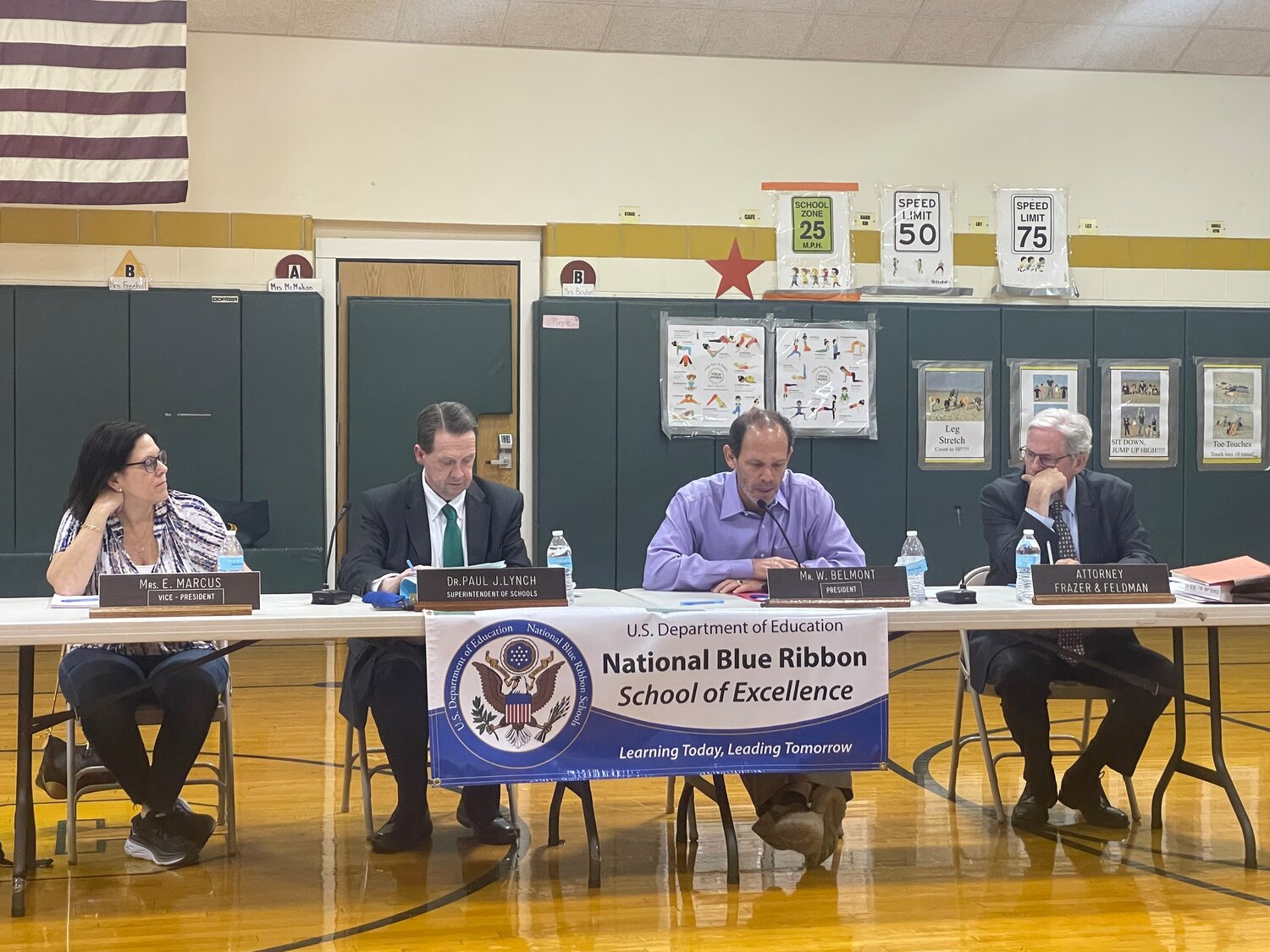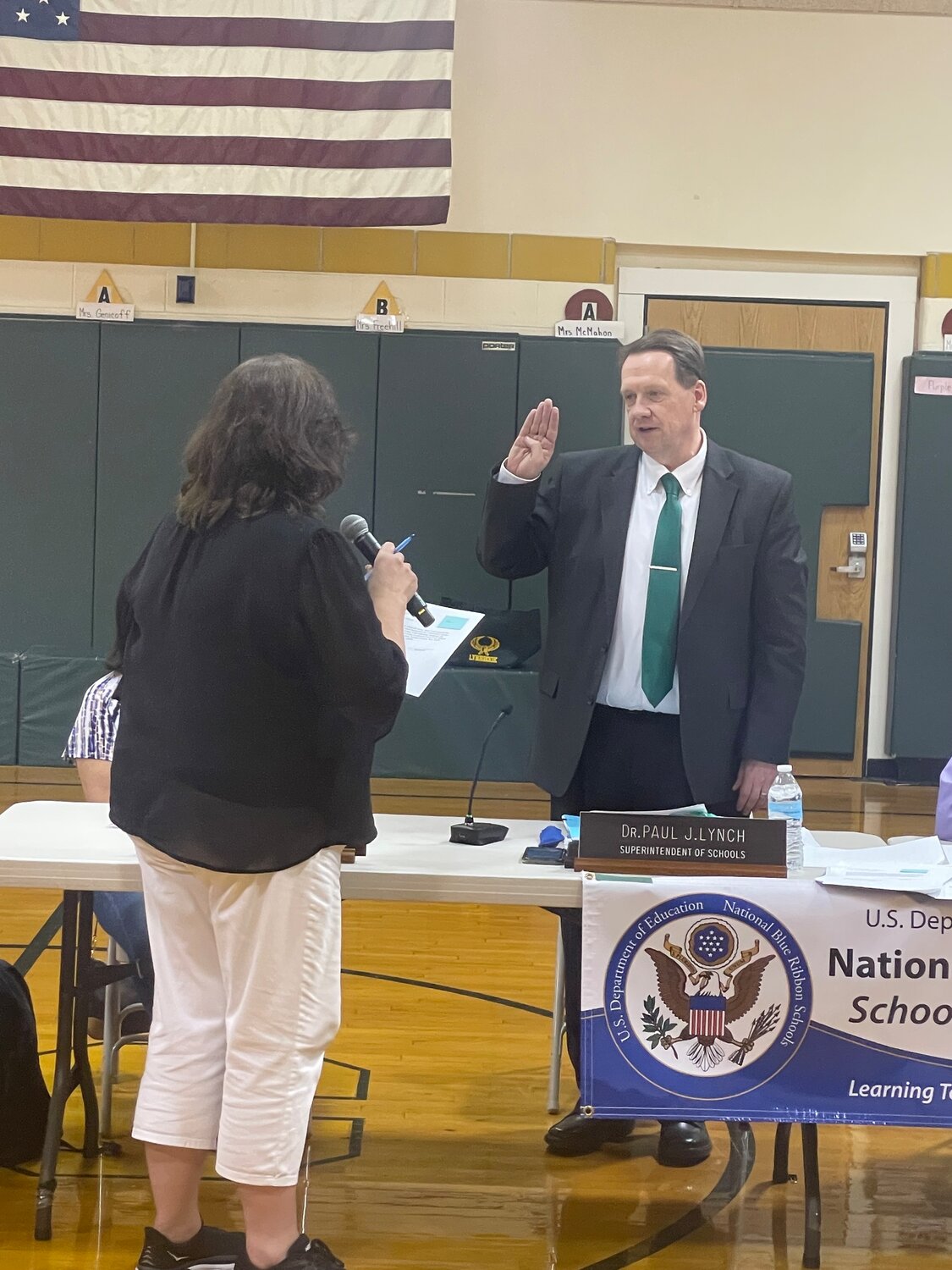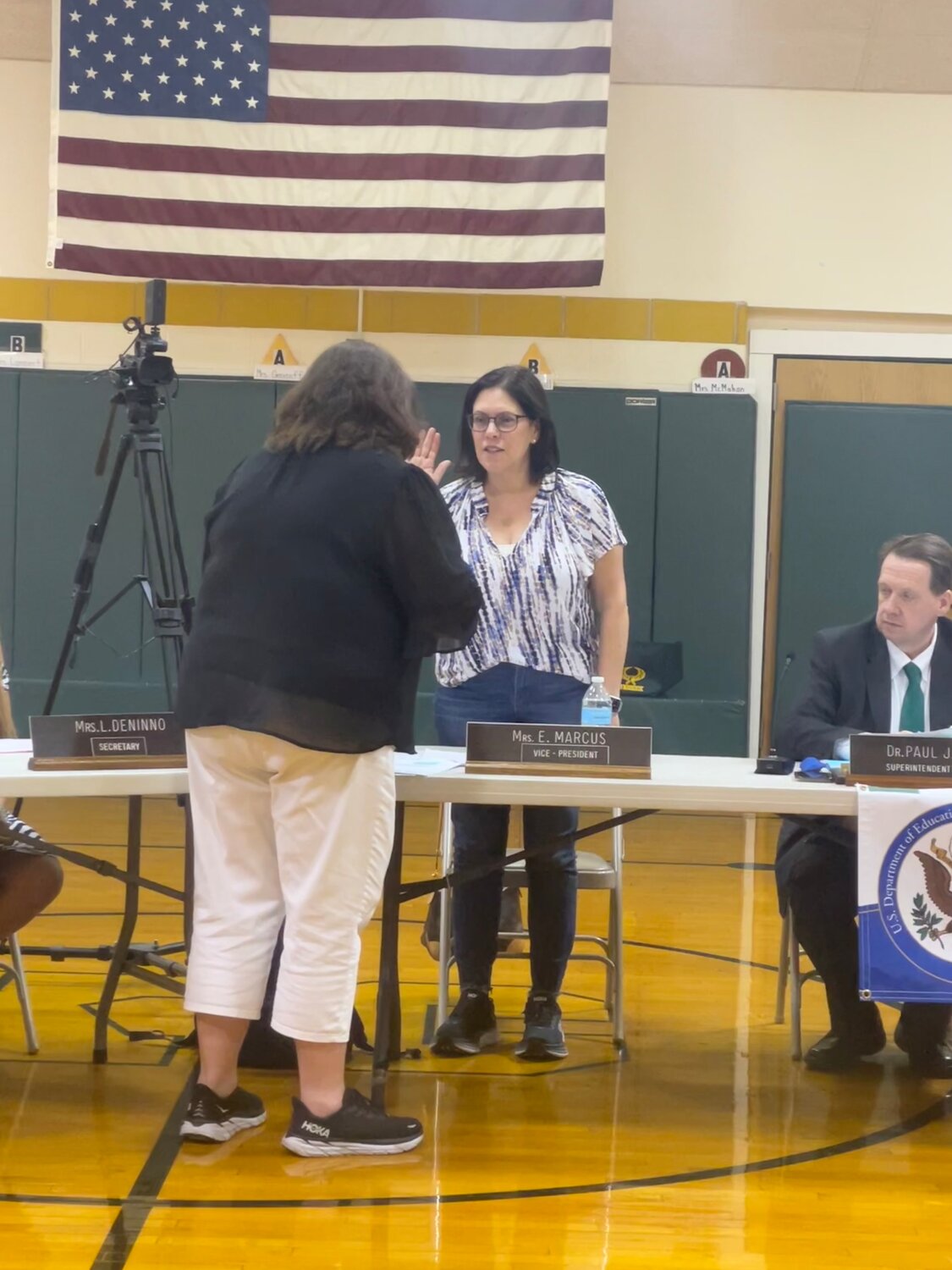Lynbrook school officials debated an important policy. What was it?
The Do No Harm policy debate by Lynbrook School District board members overshadowed the swearing in ceremonies during the July 5 reorganization meeting.
The Do No Harm policy states that if a student’s regents grade would have a positive or neutral impact on their class grade, that regents grade would continue to be factored into that average (the weight of regents exams on class averages is determined by each district). If a student’s regents grade would negatively impact their class average, it would not be factored into that average. The regents exam score would remain on the student’s transcript.
The policy was first brought two years ago up by Lesli Deninno, who is now serving as Board Secretary. Now as surrounding districts — Jericho, Syosset, Hewlett-Woodmere and Bellmore-Merrick, among others — have begun to adopt Do No Harm, the Lynbrook Board of Education is revisiting the idea.
“In this world of competitive college admissions, every single point matters,” said trustee Andrew Lewner in support of the policy. “Why should a Lynbrook kid not get every advantage as a kid who’s in Hewlett or Bellmore-Merrick, or any of the other districts?”
Lewner referenced a study conducted by central administration which showed that half of all regents exams taken in this past academic year brought down students’ averages. He also pointed out that the state’s Board of Regents does not recommend the regents be factored into final class scores.
“If that exact child lived blocks over in Hewlett, that child’s average would have been higher,” Lewner said. “These are the districts that our kids are competing with for the few precious college spots, and those kids now have an advantage over our children.”
Trustee Patrick Palleschi noted out that of students’ averages that were lowered by regents exams, 98 percent were lowered by two or fewer points.
Lewner, a parent of a child in the district, said that those points matter — especially when a point or two in multiple classes can ultimately have a larger effect on overall GPA. Palleschi, though not strictly against Do No Harm, brought up that there are some potentially deleterious effects of the policy.
“Where’s the accountability?” Palleschi said. “How horribly would they have done if it didn’t weigh anything? It could have been significantly lower. Their [class] grades would have been two points higher, but now instead of a 75 or 80 on the regents exam, they might get a 45 or a 50.”
Palleschi also pointed out that those scores, which would potentially be lower if students knew they would have no consequences on their averages, would remain on the students’ transcripts and hurt them in that way. Further, a drop in regents scores could hurt the district as a whole.
“If our regents grades decrease, our national rankings will decrease,” Palleschi said. “And then that in turn will keep some of our better students out of our top schools.”
Though the Lynbrook School District is now in a new academic year, it is possible by law to enact Do No Harm retroactively — but this brings up new considerations.
“It’s not a matter of what’s legal, it’s a matter of what’s right,” said Trustee and Board Vice President Ellen Marcus. “We hire people to educate the students, and we give them latitude to figure out their grades. How do we go back now and say ‘I’m sorry, we’re opening it up and we’re changing your grades?’”
The Lynbrook Board of Education will continue Do No Harm policy discussions during upcoming meetings. The next meeting is set for August 10 in the Kindergarten Center gymnasium.

 50.0°,
Overcast
50.0°,
Overcast 









